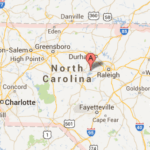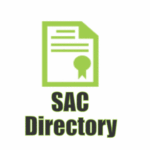| Organization | North Dakota Board of Addiction Counseling Examiners | North Dakota Addiction Counselors Association |
|---|---|---|
| Address | P.O. Box 975 Bismarck, ND 58502-0975 |
4191 37th Ave. SE Tappen, ND 58487-9308 |
| Phone # | (701) 255-1439 | |
| Website | Click Here | Click Here |
| National Affiliate | Uses IC&RC Exam | NAADAC |
Welcome to the North Dakota Substance Abuse Counselor Certification Guide, your key resource for understanding how to become a certified addiction counselor in the Peace Garden State. As North Dakota faces its challenges with alcohol and drug abuse, certified substance abuse counselors are essential in helping individuals regain control of their lives and build a path to recovery.
This guide will take you through everything you need to know about the certification process in North Dakota, from educational requirements to continuing education, so you can begin making a difference in the lives of those struggling with addiction.
Why Become Certified in North Dakota?
North Dakota, though smaller in population compared to other states, faces significant challenges with alcohol dependency and opioid addiction. According to the North Dakota Department of Human Services, alcohol-related deaths have been on the rise, and the opioid crisis has hit hard, with increasing numbers of overdoses reported across the state. Certified substance abuse counselors are at the forefront of helping individuals address these issues and seek recovery.
Becoming certified as an addiction counselor in North Dakota opens up career opportunities in various settings—such as hospitals, rehabilitation centers, outpatient clinics, and community health organizations—and enables you to make a meaningful impact on those struggling with addiction.
North Dakota Certification Requirements
Substance abuse counselor certification in North Dakota is regulated by the North Dakota Board of Addiction Counseling Examiners (NDBACE). Licensed Addiction Counselor (LAC) and Certified Addiction Counselor (CAC) are the most common certifications.
Educational Requirements
To become a certified substance abuse counselor in North Dakota, you need to meet specific educational requirements:
- Certified Addiction Counselor (CAC): Requires a bachelor’s degree in addiction counseling, psychology, social work, or a related field. In addition, candidates must complete 270 hours of approved substance abuse counseling coursework, including courses in ethics, addiction counseling, treatment planning, and clinical practice.
- Licensed Addiction Counselor (LAC): Requires a master’s degree in addiction counseling or a closely related field, along with 300 hours of specialized counseling coursework. The coursework must focus on advanced counseling techniques, ethics, and co-occurring disorders.
Tip:
Institutions such as the University of North Dakota and North Dakota State University offer degree programs that align with the educational requirements for addiction counseling certification.
Experience Requirements
In addition to education, candidates must complete supervised clinical experience:
- CAC: Requires 4,000 hours of supervised clinical experience in substance abuse counseling. For those with a master’s degree, the required hours are reduced to 2,000.
- LAC: Requires 2,000 hours of supervised clinical experience for candidates with a master’s degree. Candidates must complete direct client interaction and group therapy facilitation.
Practical Advice:
You can gain clinical experience through organizations like Prairie St. John’s, ShareHouse, and South Central Human Service Center, which offer comprehensive addiction treatment services across North Dakota.
Certification Exams
Candidates must pass the certification exam after completing the education and clinical experience requirements. North Dakota uses the International Certification & Reciprocity Consortium (IC&RC) exam for addiction counselor certification.
- IC&RC Alcohol and Drug Counselor (ADC) Exam: This exam assesses your knowledge in key areas such as addiction counseling techniques, ethics, treatment planning, and client assessment.
Study Tips:
Consider using IC&RC-approved study materials and taking advantage of online practice exams. Many local organizations and counseling boards also offer workshops to help candidates prepare for the exam.
Application Process
Once you meet the education, clinical experience, and exam requirements, you can apply for certification through the North Dakota Board of Addiction Counseling Examiners (NDBACE).
Steps to Apply:
- Complete the Application: Download the certification application from the NDBACE website.
- Submit Required Documentation: You will need to provide:
- Official transcripts and educational certificates
- Proof of completed supervised clinical hours
- Exam results
- Pay the Application Fee: Fees typically range from $100 to $300, depending on the level of certification.
- Submit the Application: Applications can be submitted online or by mail. Keep copies of all documents for your records.
Renewal and Continuing Education
Certification renewal is required every two years in North Dakota. Continuing education ensures that addiction counselors stay updated on new developments in addiction treatment and counseling techniques.
- CAC and LAC Renewal: Requires 40 hours of continuing education (CEUs) every two years, with at least 6 hours dedicated to ethics training. CEUs must include topics such as addiction treatment advancements, co-occurring disorders, and clinical supervision.
NDBACE, North Dakota State University, and other local organizations that provide workshops, webinars, and seminars offer continuing education opportunities.
Frequently Asked Questions (FAQs)
How long does becoming a certified addiction counselor in North Dakota take?
The time frame depends on your education level. For individuals with a bachelor’s degree, it can take 2 to 4 years to accumulate the required supervised clinical hours and pass the certification exam. For those with a master’s degree, the process typically takes 1 to 2 years.
Can I complete my certification education online?
Many accredited institutions offer online programs that meet North Dakota’s educational requirements for addiction counselors. However, supervised clinical experience must be completed in person at an approved facility.
Is my North Dakota certification transferable to other states?
Yes, North Dakota participates in reciprocity agreements through IC&RC, allowing your certification transferable to other states that recognize IC&RC credentials. Check with the state certification board you are interested in moving to for specific requirements.
What is the cost of certification in North Dakota?
The cost of certification, including exam fees and application fees, typically ranges from $200 to $500, depending on the level of certification. Renewal fees and continuing education costs will apply every two years.
How do I find a supervisor for my clinical hours?
Supervisors can be found through the North Dakota Board of Addiction Counseling Examiners (NDBACE) or by contacting local addiction treatment centers, hospitals, or rehabilitation facilities.
Additional Resources for North Dakota Substance Abuse Counselors
- North Dakota Board of Addiction Counseling Examiners (NDBACE)
- IC&RC Exam Information
- North Dakota Department of Human Services
- Prairie St. John’s Addiction Recovery
Mental Health and Addiction in North Dakota
According to the North Dakota Department of Human Services, nearly 50% of individuals seeking treatment for substance abuse also experience co-occurring mental health disorders, such as anxiety or depression (ND DHS, 2021). As a certified addiction counselor, you’ll work to address both addiction and mental health needs, providing a holistic approach to treatment that promotes long-term recovery.
Are you ready to become a Certified Addiction Counselor (CAC) or Licensed Addiction Counselor (LAC) in North Dakota? Follow the steps outlined in this guide to begin your certification process and make a meaningful difference in the lives of those affected by addiction.
For more information or to connect with other professionals, join our forum to share your experiences and gain support from fellow addiction counselors. Join the Forum.
Sources:
- North Dakota Department of Human Services. Substance Use and Mental Health Report, 2021. Available at: ND DHS Report.


